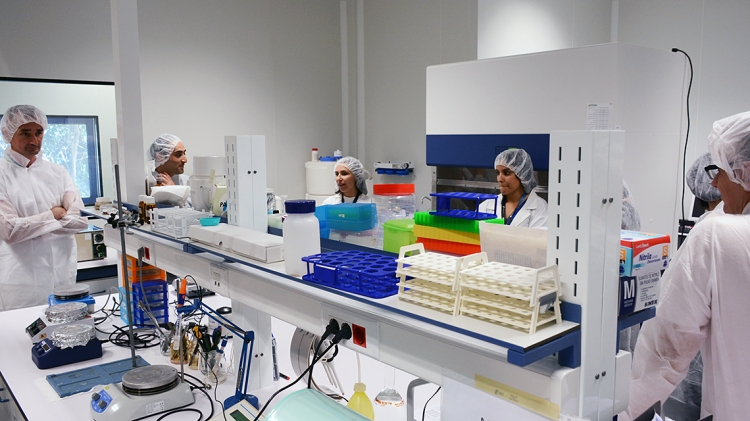More than 20 European and Central Asian countries have improved the radiation processing capacity for the production of medical supplies, and food and industrial irradiation, thanks to an IAEA technical cooperation project concluded recently. The work focused on training and exchanging experience among scientists, in order to implement more robust quality control standards.
Delivered in cooperation with participating Member States, the project, titled “Using Advanced Radiation Technologies for Materials Processing” began in 2016 with the objectives of facilitating the transfer of knowledge from countries with well-developed radiation processing capabilities to those with upstart programs, promoting the introduction of new facilities and technologies and establishing quality assurance/control procedures, with an emphasis on safety.
Training in the safe operation of both gamma and electron beam facilities was central to the project, as it served as an opportunity to educate the next generation of facility operators on sound practices in this area.
“We were able to educate our operators and dosimetrists on the use of gamma and electron beam applications and implement security practices in line with IAEA standards,” said Slobodan Mašić, the Operating Manager at Serbia’s Vinča Institute of Nuclear Sciences. “This type of training is typically not done at universities, so these training courses are very important.” This was the first time a training course on gamma and electron beams was held in Serbia, he added.
Dosimetry intercomparison was performed as a way to enhance quality control procedures, in which the amount of radiation absorbed by materials in participating laboratories were compared with values from a reference laboratory at Poland’s Institute of Nuclear Chemistry and Technology. This exercise was just one component of the knowledge sharing at the heart of this project. “Electron beam facilities are envisaged to be established in Croatia, Hungary and Serbia, and the experience shared by other countries will be crucial for the effective use of these facilities,” said András Kovács, the lead project coordinator from the Hungarian Academy of Sciences’ Centre for Energy Research. Electron beams have a wide variety of industrial applications, including the sterilization of medical products and the irradiation of food to eliminate insect pests and prevent spoilage.





